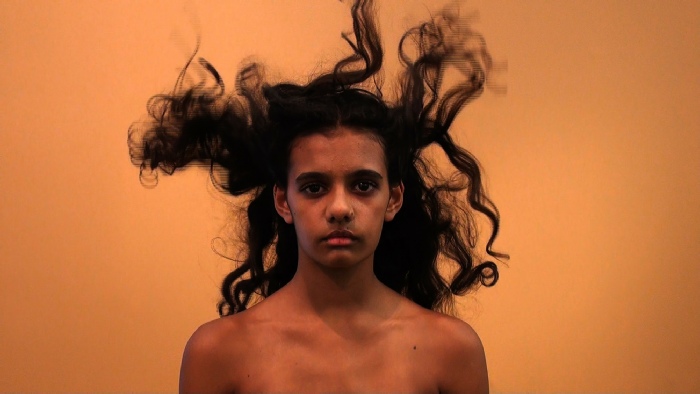Press Release
The National Gallery of Australia (NGA) and me Collectors Room Berlin present a survey of significant traditional and modern art by Aboriginal and Torres Strait Islanders, providing an insight into one of the "oldest, richest and most complex" cultures in the world (Franchesca Cubillo). Indigenous Australia: Masterworks from the National Gallery of Australia opens in Berlin on November 17.

Indigenous Australia: Masterworks from the National Gallery of Australia
Me Collectors Room Berlin (Germany)
17.11.2017 - 02.04.2018

Exhibition November 17, 2017 -

© ArtCatalyse International / Marika Prévosto 2017. All Rights Reserved
Christian Thompson, Heat (still), 2010. Three-
The NGA hosts the most extensive collection of Aboriginal and Torres Strait Islander artwork worldwide. Franchesca Cubillo, NGA Senior Curator of Aboriginal and Torres Strait Islander Art, aims to further the international recognition of these multi-
The collection reflects Aboriginal culture’s deep spirituality in its connection to country. The religious mythology of the Dreaming holds an important place in many of the works, producing images of intricate patterns belonging to particular regions while works such as Meeting the White Man (Tommy McRae) remind us that there has been great upheaval and change for these cultures throughout past and recent history. Some, sensing the ongoing transformation, used the medium of artistic expression to document their people’s ways, preserving them for future generations by portraying mythology and ancient rituals. Consequently, many of the modern works deal directly with issues arising today in Aboriginal society: Identity, politics, and sharing the complex history. This ongoing process of change is reflected in the arrangement of pieces throughout the exhibition. Many early works, showing natural phenomena and the land, are painted on bark using natural earth pigments, and so intentionally share a direct connection with the area they portray. Later on, more frequent exchange between Aboriginal and western culture led to the integration of new styles and increasing diversity: For example, beginning in the 1970s, artists of the Papunya community adopted acrylic paint on canvas as a new medium to share the ancient stories of their ancestors. Others came to adopt western watercolour landscape painting techniques as early as the 1930s. Works from the 1980s onward utilize ever wider variations of media and styles, but retain in their core the central themes of nature, land, and community—spiritual and political alike—and remain deeply rooted in their culture’s styles and traditions.
On the occasion of the exhibition the catalogue Indigenous Australia: Masterworks from the National Gallery of Australia will be published by the National Gallery of Australia.
Artists: Vernon Ah Kee, Doreen Reid Nakamarra, Tony Albert, Mick Namarari Tjapaltjarri, Brook Andrew, Albert Namatjira, Declan Apuatimi, Wamud Namok, Jean Baptiste Apuatimi, Ankung Djang II, William Barak, Walangkura (Jackson) Napanangka, Richard Bell, Poly Ngal, Djan Nanundie (Jan Billycan), Trevor Nickolls, Robert Campbell Jnr, Lin Onus, Michael Cook, Christopher Pease, Brenda L. Croft, Shane Pickett, Nici Cumpston, Clifford Possum Tjapaltjarri, Destiny Deacon, rea, Jarinyanu David Downs, Michael Riley, Fiona Foley, Yhonnie Scarce, Julie Gough, Charlie Tarawa, Jonathan Jones (also known as Charlie Tjaruru Tjungurrayi), Paddy Jupurrurla Nelson, Rover Thomas [Joolama], Paddy Japaljarri Sims, Christian Thompson, Kwentwentjayn Jungurrayi Spencer, Alick Tipoti, Mirdidingkingathi Juwarnda (Mrs Gabori), Anatjari No. 1 Tjampitjinpa, Emily Kame Kngwarreye, Kaapa Mbitjana Tjampitjinpa, Tim Leura Tjapaltjarri, Ray James Tjangala, Mawalan 1 Marika, Timmy Payungka Tjapangarti, Peter Marralwanga, Old Tutuma Tjapangati, John Mawurndjul AM, Alice Wamba, Ricky Maynard, Judy Watson, Tommy McRae, Yirawala, Danie Mellor, Gulumbu Yunupingu, Mickey of Ulladulla, Munggurrawuy Yunupingu, Alec Mingelmanganu, and several works by unknown artists.
